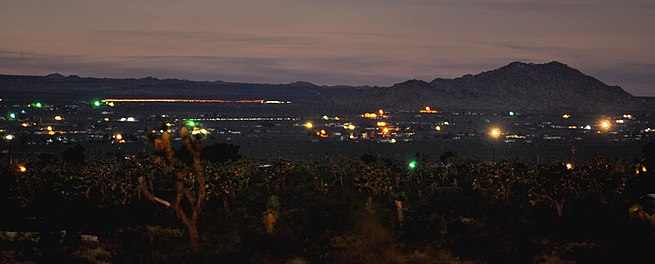Main Difference
The main difference between Dusk and Sunset is that the Dusk is a darkest stage of twilight, or at the very end of astronomical twilight after sunset and just before night and Sunset is a daily disappearance of the Sun below the western half of the horizon.
-
Dusk
Dusk occurs at the darkest stage of twilight, or at the very end of astronomical twilight after sunset and just before night. Pre-dusk, during early to intermediate stages of twilight, there may be enough light in the sky under clear conditions to read outdoors without artificial illumination, but at the end of civil twilight, when Earth rotates to a point at which the center of the Sun is 6° below the local horizon, artificial illumination is required to read outside. The term dusk usually refers to astronomical dusk, or the darkest part of twilight before night begins.
-
Sunset
Sunset or sundown is the daily disappearance of the Sun below the horizon due to Earth’s rotation. As viewed from the Equator, the equinox Sun sets exactly due west in both spring and fall. As viewed from the middle latitudes, the local summer Sun sets to the northwest for the Northern Hemisphere, but to the southwest for the Southern Hemisphere.
The time of sunset is defined in astronomy as the moment when the upper limb of the Sun disappears below the horizon. Near the horizon, atmospheric refraction causes sunlight rays to be distorted to such an extent that geometrically the solar disk is already about one diameter below the horizon when a sunset is observed.
Sunset is distinct from twilight, which is divided into three stages, the first being civil twilight, which begins once the Sun has disappeared below the horizon, and continues until it descends to 6 degrees below the horizon; the second phase is nautical twilight, between 6 and 12 degrees below the horizon; and the third is astronomical twilight, which is the period when the Sun is between 12 and 18 degrees below the horizon. Dusk is at the very end of astronomical twilight, and is the darkest moment of twilight just before night. Night occurs when the Sun reaches 18 degrees below the horizon and no longer illuminates the sky.
Locations north of the Arctic Circle and south of the Antarctic Circle experience no sunset or sunrise on at least one day of the year, when the polar day or the polar night persists continuously for 24 hours.
Sunset creates unique atmospheric conditions such as the often intense orange and red colors of the Sun and the surrounding sky.
-
Dusk (noun)
A period of time at the end of day when the sun is below the horizon but before the full onset of night, especially the darker part of twilight.
-
Dusk (noun)
A darkish colour.
-
Dusk (verb)
To begin to lose light or whiteness; to grow dusk.
-
Dusk (verb)
To make dusk.
-
Dusk (adjective)
Tending to darkness or blackness; moderately dark or black; dusky.
-
Sunset (noun)
The time of day when the sun disappears below the western horizon.
-
Sunset (noun)
The changes in color of the sky at sunset.
-
Sunset (noun)
The final period of the life of a person or thing.
“one’s sunset years”
-
Sunset (noun)
Having a set termination date.
“The tax increase legislation included a sunset clause requiring renewal to prevent the tax increase from expiring.”
-
Sunset (noun)
The region where the sun sets; the west.
-
Sunset (verb)
To phase out.
“We’ll be sunsetting version 1.9 of the software shortly after releasing version 2.0 next quarter.”

